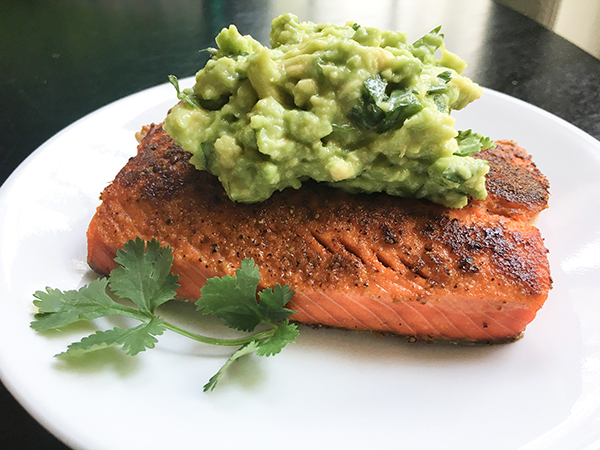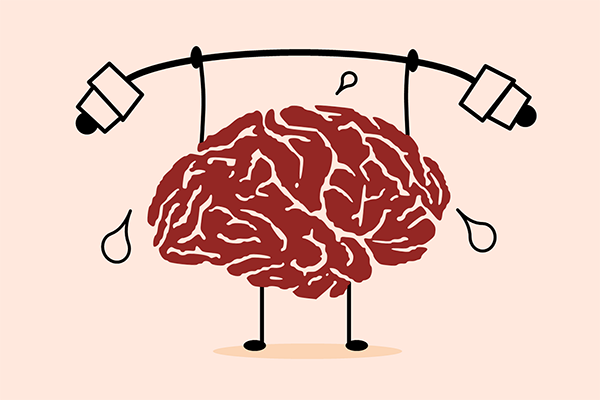We have all likely heard by now that if you have diabetes you also have an increased risk of heart disease. But what you might not know is that if you have diabetes (especially poorly controlled) your risk for dementia and Alzheimer’s is also increased. A growing body of research indicates that diabetes or elevated blood glucose levels affects our brain health! More and more studies are concluding that diabetes is a significant risk factor for all-cause dementia and Alzheimer’s.
“Type 3 Diabetes”
So, how are these two conditions related? Insulin plays many vital roles in the brain like neuron growth, communication between neurons and regulation of cognition and memory. If you are insulin resistant (the first step towards diabetes), this means that insulin can’t do its job. Elevated glucose levels can cause brain cell damage and brain inflammation. These effects contribute to the symptoms of dementia and Alzheimer’s including: impaired memory and ability to learn, reduced ability to make judgments and communicate, changes in personality, anxiety, agitation and delusions. Researchers have found such a strong connection they have coined the term “Type 3 Diabetes” for Alzheimer’s.
We know that genetics plays a role in dementia and Alzheimer’s (especially the ApoE4 gene), but diet and lifestyle play a much larger role. Prevention is also easier than treatment. Dementia can begin when you are younger and can take decades to develop and worsen, just as you can develop insulin resistance a decade before you are diagnosed with diabetes. Those with pre-diabetes have an increased risk for having pre-dementia or mild cognitive impairment. So, you don’t have to have full blown type 2 diabetes to develop brain issues and memory loss from insulin resistance. You are never too young to be thinking prevention and to optimize your brain health.
Research indicates that nutrition and lifestyle interventions are effective strategies for promoting brain health and preventing neurodegeneration. Improving blood glucose levels may help prevent and aid in treatment of dementia and Alzheimer’s.
#Diabetes increases risk for all-cause dementia and Alzheimer's. Learn more and what you can do to preserve brain health. #saslife Click To TweetNutrition
To optimize brain health, we want to eat in a way that won’t raise glucose or insulin levels too much (low glycemic), that doesn’t promote inflammation and that provides our body with all the nutrients that it needs. What does this look like? (This might look familiar to those that read this blog often 😉)
- Real whole unprocessed foods (highly processed foods are limited or avoided)
- 8-10 servings of non-starchy vegetables per day (a colorful variety) – work up to this amount
- 2 servings of whole fruit per day (again, a colorful variety)
- High quality oils and fats (think avocados, cold pressed olive oil, raw nuts and seeds)
- Omega-3 rich fish 2-3 times per week (wild salmon, sardines, mackerel, herring)
- Adequate protein from high quality animal sources (grass fed, pasture raised, etc.) as well as plant-based sources (lentils, beans, etc.)
- Small amounts of nutrient rich carbohydrates (sweet potatoes, steel cut oats, etc.)
A few specific nutrients to pay attention to:
Vitamin A (retinoids)
- Brain health role: A potent signaling molecule in the brain, Vitamin A plays a role in neurogenesis and resiliency of the brain to changes. Vitamin A deficiency effects behavior, learning and memory.
- Sources: pasture raised eggs, liver, milk, cheese, butter, shrimp, fish
Vitamin D
- Brain health role: Studies show that low levels of Vitamin D impair cognitive function. It is needed for neurotransmitter synthesis and nerve growth and also protects neurons and reduces inflammation. (Vitamin D also plays a role in blood sugar regulation!)
- Sources: sunlight, sardines, salmon, mackerel, tuna, eggs, fortified foods, supplements
Vitamin C
- Brain health role: Crucial for overall cognitive function and performance, Vitamin C is needed for growth of neurons, formation of the myelin sheath (protects the neurons) and neurotransmitter synthesis.
- Sources: many fruits and vegetables including broccoli, citrus fruits, bell peppers, kiwi, etc.
Vitamin E
- Brain health role: This antioxidant protects cells from oxidative stress and may help prevent or delay cognitive decline.
- Sources: sunflower seeds, almonds, spinach, avocado, olive oil, butternut squash
Choline
- Brain health role: Choline is the precursor to acetylcholine, which is a neurotransmitter involved in focus, memory and processing.
- Sources: egg yolks, beef liver, beef, scallops, salmon, chicken
Omega-3 fats (EPA/DHA)
- Brain health role: Crucial for normal brain function and development, Omega-3s reduce inflammation and are needed for brain cell membrane formation and neurotransmitter communication. Lower DHA levels are associated with smaller brain size, learning and memory deficits and mood disorders.
- Sources: wild salmon, sardines, mackerel, herring
Of course, Alzheimer’s is a multi-factorial illness and improving your diet is just ONE of the things you can do to reduce your risk. We also must look at other aspects of our health.
Sleep
Adequate quality sleep is another thing you can do to help keep your brain healthy. When we sleep our brain literally cleans itself. The glymphatic system clears the brain of toxic metabolic byproducts while we are sleeping. In a similar way that the lymphatic system clears out metabolic waste products from the rest of the body, this system carries cerebrospinal fluid that is filled with waste products out of the brain. If this doesn’t happen (ie- we don’t get enough sleep) toxins can build up in the brain which can lead to impaired cognitive function, neurodegenerative disorders and many other issues.
If you want to learn more about the glymphatic system and how it relates to diabetes and dementia THIS is a great paper to read! (warning, very technical)
Stress
Chronic stress can cause changes in brain structure and function. It is associated with poor memory and cognitive function. Stress also increases inflammation in addition to blood glucose levels. It’s important to pay attention to your daily stress levels and find ways to reduce overall stress and improve how you respond to stress. Getting enough sleep, a healthy diet and regular exercise are a given, but adding in deep breathing, meditation, yoga, or other relaxation techniques can become necessary to truly calm your mind.
Exercise
Regular exercise is also important for our brain health. Many studies have concluded that regular exercise reduced cognitive decline and dementia and can also contribute to cognitive reserve. Exercise can make our brains bigger! It turns on production of BDNF (brain derived neurotrophic factor), which is basically the brains “growth hormone.” BDNF also plays a role in learning, memory and mood regulation. Just 15-20 minutes of exercise a day can provide benefits! And of course, we all know that regular exercise helps reduce blood glucose levels and improve diabetes as well.
Microbiome
And, of course our microbiome can play a role in our brain health! The bacteria in our colons communicate with the central nervous system. The brain-gut axis has been identified in many neurological disorders including Alzheimer’s. This connection impacts neurotransmitter release, GI motility, mood and immune health. We want a very diverse microbiome, and this diversity tends to decrease with age and with poor diet. In studies, probiotics decreased brain inflammation markers and improved cognitive performance and memory and many other brain functions. Optimize your microbiome by eating a large diversity of plant foods and fermented foods and save antibiotics for only those times that they are absolutely necessary (then follow up with probiotics!).
Toxins
We are exposed to toxins every day, from the air, water, and food we eat to our work or even our hobbies. We can’t avoid all toxins, but we want to be mindful about our overall exposure. Do the best you can to reduce the amount of toxins in your life: filter your water, filter your home air, buy organic when possible, don’t heat foods in plastic, wear protective gear when dealing with paints, solvents, etc. that you might be exposed to at work, or with hobbies or home projects. Toxins can dramatically impact our brain health in many ways.
Past prevention?
Check out these links for news about new treatment options for Alzheimer’s and Dementia that are actually working (unlike the drugs on the market right now):
More Resources:
- Impact of impaired glucose tolerance and type 2 diabetes on cognitive aging
- Pre-diabetes, brain aging, and cognition
- Hyperinsulinemia and risk of Alzheimer disease
- Reversal of cognitive decline in Alzheimer’s disease
- Insulin in the brain
Fisherman’s Eggs
Adapted from: Garlic Matters
Makes 1-2 servings
This super easy breakfast or lunch is packed with brain loving nutrients; Omega-3 fatty acids, choline, and carotenoids to name a few. The sweetness from the onion and the spicy hot sauce will help mask the sardine flavor for those who feel they don’t like sardines. Once they are cooked though, they don’t even taste fishy, just meaty.
Ingredients
1 can of sardines, drained and lightly mashed with a fork
1 medium onions, chopped
2 garlic cloves, chopped
1 tbsp olive oil
2 eggs
1 medium tomato, chopped
1 lime (will need zest and juice)
Baby greens (any kind will do)
Hot sauce (optional)
Directions
- Pre-heat oven to 350ºF.
- Heat an oven safe pan over medium low.
- Add olive oil and onions and sauté until soft (about 7 minutes).
- Add chopped garlic and cook another minute.
- Mix in sardines, tomatoes, zest of about ½ the lime, and gently crack the 2 eggs on top.
- Place it in the oven for 15 minutes or until egg whites are set.
- Place greens on plate or bowl and spoon warm dish over the greens, add a squeeze of lime juice over top and hot sauce if preferred.







